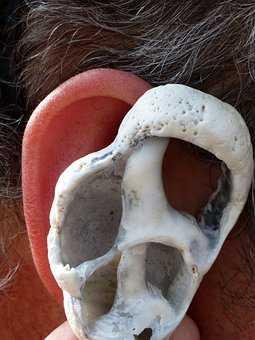Balancing Act
Our vestibular system is responsible for balance. A gel is located inside our ears and tells our brain if we are going right or left.
When we spin in a circle, the gel keeps moving when we stop, resulting in disorientation. When the loss of balance is severe, the brain interprets it as poisoning. That is why the loss of balance can result in nausea.
96
390 reads
CURATED FROM
IDEAS CURATED BY
Passionate tv nerd and lifelong web junkie. I love sleeping. Sleeping is a science and I study it.
The idea is part of this collection:
Learn more about health with this collection
How to handle conflicts
How to identify and regulate emotions
How to develop self-awareness
Related collections
Similar ideas to Balancing Act
Subconscious And Conscious Brain
Our subconsious mind continuously processes information, even when we sleep, which our conscious mind finally learns or infers, lighting a bulb inside us.
We know the gut feeling is true because our 'right brain'(intuition and emotion-based) already knew the revelation that our le...
The neuroanatomy of willpower
- The prefrontal cortex (PFC) is the part of our brains situated right behind our forehead. It is responsible for abstract thinking, analyzing thoughts, and regulating behavior.
- The PFC controls what we think about, what we pay attention to, how we feel. Studies point out that this p...
Brain target
- The default mode network of our brain, responsible for mind-wandering and creativity, needs to be turned down when we want to work for any length of time.
- The brain's dorsal attention network - the part that helps us make decisions and focus on a task - ...
Read & Learn
20x Faster
without
deepstash
with
deepstash
with
deepstash
Personalized microlearning
—
100+ Learning Journeys
—
Access to 200,000+ ideas
—
Access to the mobile app
—
Unlimited idea saving
—
—
Unlimited history
—
—
Unlimited listening to ideas
—
—
Downloading & offline access
—
—
Supercharge your mind with one idea per day
Enter your email and spend 1 minute every day to learn something new.
I agree to receive email updates

